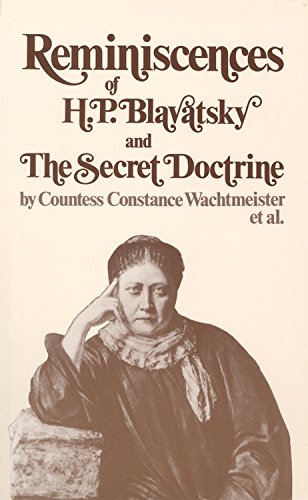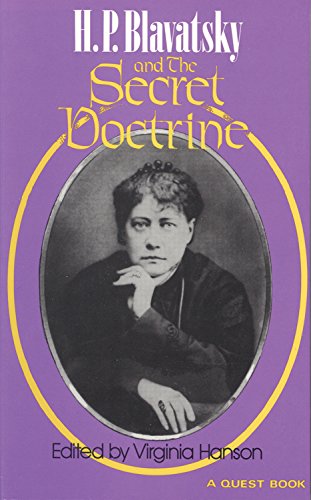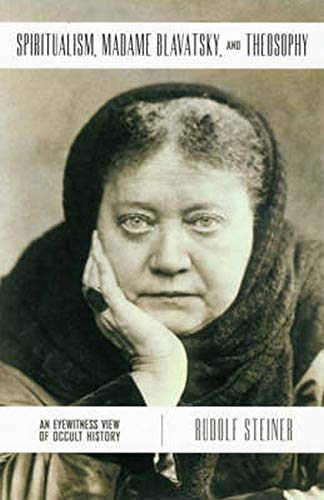Refutation of Charges Against Madame Blavatsky
And The Theosophical Movement
General Refutation of Charges
Madame Blavatsky has received more than one person’s fair share of slander and libel. Perhaps it is because she was one of the few women of her day to defy the patriarchal structures that had been in place for millennia, both in religion, science as well as in philosophy.
“She was called an ‘adventuress’ in an age when women’s activities were restricted. She traveled the world alone daring to attack prevailing religious, philosophical, and scientific orthodoxy, and demonstrating her startling psychic powers. Others called her the greatest occultist in the history of Western civilization.” -Virginia Hanson from her book, H.P. Blavatsky and the Secret Doctrine.
The vilification of HPB still continues today, worse, the same untruths have often been repeated for a century – with no reference to their refutation. Below we have outlined some of the more egregious attacks on her personally and on her works, along with excellent rebuttals from prominent Theosophists, and from others outside the movement.
“She (Helena P. Blavatsky) brought key-thoughts, ideas that are universal, not hers, she declared, but those of the timeless Archaic Wisdom-Religion-Philosophy for which she was only a channel. She moved the intransigent, the heavy materialistic, and – daring thought perhaps for Western minds – she became through her composite self that Force needed to initiate for mankind a new Cycle. Misunderstood, unappreciated except by the few, reviled and persecuted, she wrought her great work. And its momentum rolls on.
The basic tenets she boldly enunciated constitute the very essence of all occult doctrine. To begin to understand them is to begin to know her; and to know the doctrine she taught is to begin to know Truth.” – Helen Todd and W. Emmett Small -Editors of the book, H. P. Blavatsky: The Mystery by Gottfried de Purucker.
One of the most famous defamations against H. P. Blavatsky was a lengthy article that appeared in 1890 in The New York Sun, one of the leading newspapers in the United States of that time. It had been written by Elliott Coues, an otherwise accomplished individual who had been denied the leadership of the American Section of the Theosophical Society by Madame Blavatsky – and later expelled for cause from that organization. As one veteran newspaperman remembered it, the Sun article brought together “every calumny that could be imagined or raked up from the ends of the earth.” Two lawsuits were brought on behalf of HPB, one against the Sun and the other against Dr. Coues. HPB died before the case came to trial – therefore the case became moot, and the newspaper did not need to defend itself. Nevertheless, the Sun voluntarily retracted the article on September 26, 1892, saying:
We print on another page an article in which Mr. William Q. Judge deals with the romantic and extraordinary career of the late Madam Helena P. Blavatsky. (The article that appeared then was Esoteric She by William Q. Judge.) We take occasion to observe that on July 20, 1890, we were misled by Dr. E. F. Coues of Washington, in which allegations were made against Madam Blavatsky’s character, and also against her followers, which appear to have been without solid foundation. Mr. Judge’s article disposes of all questions relating to Madame Blavatsky as presented by Dr. Coues, and we desire to say that his allegations respecting the Theosophical Society and Mr. Judge personally are not sustained by evidence and should not have been printed.
New books and articles are still being printed that denigrate Blavatsky and manufacture yet new charges against her. Perhaps it is a measure of her worth and the profundity of the revolution she started, that her books and writings are still in print, and she is still worth vilifying a century later. The tedious task of reviewing some of these new books and pointing out their errors has been undertaken by other Theosophists and the results are outlined in this article. It is the intent of this site to continue to refute the outlandish lies and misrepresentations wherever and whenever we find them.
Madame Blavatsky's Baboon
This book by Peter Washington has received wide notice but slants the facts against Blavatsky with obvious inuendo and with less obvious error. Will Thackara wrote “Notes on Madame Blavatsky’s Baboon” for the October 1997 issue of Theosophical History. Professor James Santucci, introducing the notes, calls them a “remedial essay.” A slightly expanded version of the full text of Thackara’s essay has been posted. (This version gives page numbers into Washington’s text.) In his analysis Thackara notes numerous factual errors in Washington’s book and comments in part:
“On superficial examination the book appears to be well-researched and objective. But a more careful inspection — especially of the theosophic section, to which these remarks are limited — discloses serious errors and omissions. Aside from fairly obvious use of innuendo and half-truths to bolster his negative conclusions about H. P. Blavatsky and Katherine Tingley, the author is frequently inaccurate, misrepresents theosophic teaching, relies on uncorroborated assertion (often from unfriendly secondary and tertiary sources), omits rebuttal evidence, garbles dates, events, and attributions, downgrades, trivializes, and generally gives a one-sided account. Whatever merit the book may have been defeated by its unreliability and prejudice. ” – Will Thackara
Rebuttal of Hodgson Report
In 1885 a committee of the Society for Psychical Research (SPR) issued a report by Hodgson condemning Madame Blavatsky. It caused substantial damage to her reputation and was assumed by many to be the official opinion of the SPR. The damage to Blavatsky’s reputation and that of Theosophy due to the falsehoods of that report has lingered on still today. One hundred years later, in 1986, the SPR published in its magazine an article by Vernon Harrison debunking the century old committee report.
Rebuttal of Hodgson Report – Press Release- (May 8, 1986). The publication of Vernon Harrison’s analysis in the SPR Journal was of such significance – contradicting a position that had been held for a century, on an erroneous report that had tumultuous and undesirable consequences – that the SPR issued a Press Release announcing the publication of the new article. The press release itself is a little bland, but its heading says: “Madame Blavatsky … Unjustly Condemned.” Central to the conclusion of that report was an analysis of some handwriting samples.
However, the April 1986 issue of the Journal of SPR – on the one hundredth anniversary of the original article – published an effective retraction of the charges against HPB. In that issue Dr. Vernon Harrison, “a long-standing member of the SPR” wrote that the handwriting samples upon which the first report was based were “so weak, partisan, and confused, that it might just as easily show that Madame Blavatsky wrote Huckleberry Finn – or that President Eisenhower wrote the Mahatma Letters.”
It concludes by quoting the General Secretary of the Theosophical Society in England:
We welcome the publication of Dr. Harrison’s findings, which independently confirm what many Theosophists have pointed out in the past century. We hope that the Theosophical message in general, and Madame Blavatsky’s work in particular, can now be studied without the distraction of the Hodgson allegations.
Rebuttal of Hodgson Report – Editor’s preface– to Vernon Harrison’s article by the Editor of the Journal of the Society for Psychical Research. This contains more helpful background than the press release above. The editor says:
In this issue of our Journal, coming as it does almost exactly one hundred years after the publication of the Hodgson Report, we are happy, in the interests of truth and fair play, and to make amends for whatever offence we may have given, to publish here one such critical analysis by a hand-writing expert.
Rebuttal of Hodgson Report – Conclusion – Conclusion of Vernon Harrison’s article published in April 1986 Journal of Society for Psychical Research. Amongst other comments, Harrison says:
Had she [Blavatsky] been allowed the legal and expert help she begged for, both Hodgson and the Society for Psychical Research would have been in dire trouble.
In 1997, Dr. Harrison published a new book entitled H. P. Blavatsky and the SPR. This book includes a line-by-line examination of 1,323 color slides of the Mahatma Letters and concludes that “the Hodgson Report is even worse than I had thought.”
Rebuttal of K. Paul Johnson's Books
K. Paul Johnson authored three books that generate still more false ideas about Blavatsky. There are two analyses online that show the flaws in his reasoning. David Pratt’s inciteful and extensive exposé –“The Theosophical Mahatmas: A Critique Of Paul Johnson’s New Myth concludes in part:
Johnson shows an astonishing willingness to dismiss all witnesses who offer testimony contrary to his pet theory as liars and frauds but is happy to make use of anything reported by these same witnesses that seems consistent with his theory. He quotes out of context and twists statements to suit his beliefs. His interpretations lead to many inconsistencies, contradictions, and absurdities.
Daniel Caldwell’s article, Publication of Mahatma Letters concludes in part:
Unfortunately, Johnson’s books are marred by numerous serious mistakes and inaccuracies. …
All in all, Johnson’s “identifications” of the two Masters don’t withstand a critical analysis of the sum total of evidence and testimony concerning the adepts involved. I believe that anyone who carefully studies the evidence and seriously thinks thorough the issues involved will reasonably conclude that Johnson’s so-called “persuasive case” about the Masters M. and K.H. is nothing but a “house of cards.” Even as “suggestions”, Johnson’s conjectures on these two Masters are highly implausible and dubious when carefully scrutinized in light of all the known facts.
Academic Nonsense
It is often de rigueur for an academic paper to position itself as quite above HPB and able to assert the nature of her sources correctly – in the process assuming HPB’s own assertions as to her sources are not correct. What is fascinating is the lack of academic adherence to such trivial minutia as: literary references, quotes from respected academics in the field supporting absolute statements, logical demonstrations outlining the steps to which such outlandish, absolute statements are arrived at, instead the reader is subjected to hypotheses and innuendos. Such an example is Grigor V. Ananikian’s Note: “The Blavatsky/Tibet and the Stanzas of Dzyan Connection.“ You may find the refutation by Siémons much more instructive: “It is Some Reflections on the Note, by Grigor V. Ananikian, about “The Blavatsky/Tibet and Stanzas of Dzyan Connection.“ by Jean-Louis Siémons Member of the American Academy of Religions.
Back to Madam Blavatsky her life.
Biographies of Madame Blavatsky
“H.P.B.: The Extraordinary Life and Influence of Helena Blavatsky, Founder of the Modern Theosophical Movement” – by Sylvia Cranston. The definitive biography of HPB – based on many years of research. This book provides a proper understanding of HPB and disposes of the charges against her. Written by a long-time student of Theosophy. You can find this book on our retail site: Silk Road Traveler, now available.



Madame Blavatsky: Mother of Modern Spirituality.
A thoughtful biography of one of the most polarizing pioneers of alternative spirituality, the occult-mystic Helena Petrovna Blavatsky.
Pioneer. Visionary. Provocateur
A day-to-day account of life with H. P. Blavatsky during the writing of The Secret Doctrine.
The Esoteric World of Madame Blavatsky
World traveler and student of religions, Blavatsky was among the first to bring Eastern wisdom to the West. Her writings excited such luminaries as W.B. Yeats, James Joyce, Wassily Kandinsky, Piet Mondrian, and Gustav Mahler. Here are first-handed accounts of her colorful life by family, friends, and enemies.



H. P. Blavatsky and The Secret Doctrine
This commentary unravels mysteries that surround fame Russian occultist H.P. Blavatsky and her mammoth classic, “the Secret Doctrine. This Quest edition features commentaries by many eminent writers on H. P. Blavatsky’s significant contribution to world thought.
In December 1885 the Society for Psychical Research (SPR) in London, England, published a 200-page report by Richard Hodgson. The report is perhaps best known for its denunciation of H. P. Blavatsky as an impostor, and is often quoted in encyclopedias, reference books, and biographical works. In April 1986 the SPR Journal, ‘in the interests of truth and fair play,’ published a critical analysis of the Hodgson Report by handwriting expert Vernon Harrison, who found it ‘riddled with slanted statements, conjectures advanced as fact or probable fact, uncorroborated testimony of unnamed witnesses, selection of evidence and downright falsity.’
Spiritualism, Madame Blavatsky and Theosophy
Without the spiritualist movement and the amazing personality of Helena Petrovna Blavatsky, the creator of the Theosophical Society, the spiritual revolution of the twentieth century―the so-called New Age, with all its movers and shakers―would be unimaginable.

